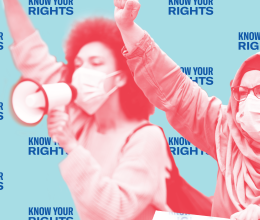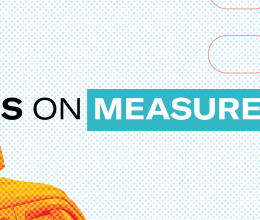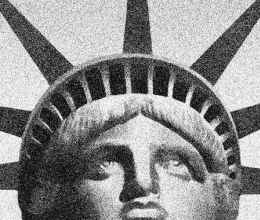SAN FRANCISCO - In a ruling handed down today, the U.S. Court of Appeals for the Ninth Circuit reversed a federal district court's ruling in the first-of-its-kind Internet political speech case. The Ninth Circuit ruled that the district court erred in dismissing certain claims and in refusing to decide other claims until a state court could determine whether California's election laws apply to these websites. The case, Porter v. Jones, goes back to the district court for further proceedings.
"We are very pleased that the Ninth Circuit has reversed the District Court's ruling and that we will have the opportunity to prove that our clients activities were political speech protected by the First Amendment," said Peter Eliasberg, managing attorney with the ACLU/SC.
In the weeks leading up to the 2000 presidential election, the tight contest between George W. Bush and Al Gore and the high level of interest in the third party presidential candidates prompted the creation of many internet sites that discussed the effect of the electoral college and various voting strategies. The sites included www.votexchange2000.com, www.voteswap2000.com, and www.nadertrader.com The purpose of the websites was to provide information about the political system and to match together people from "safe" and "swing" states with complimentary voting preferences. California Secretary of State Bill Jones sent a cease and desist letter to the operators of www.votexchange2000.com. The Secretary of State threatened to prosecute the site's operator under the California Elections Code sections 18521 and 18522 for brokering the exchange of votes. Similar letters were also sent to internet service providers such as Yahoo! and Register.com.
The site's operator, Alan Porter, together with the Democratic Law Students at UCLA, filed suit against Jones for denying them freedom of speech and association in violation of the First Amendment.
"By reversing the decision below, this ruling recognizes the important role that the Internet can play in a democracy," said Lisa Danetz, staff attorney with the National Voting Rights Institute. "The Internet is a powerful technology that allows all voters a relatively low-cost opportunity to form political associations and discuss voting strategies. We are confident that, with this case now moving toward trial, we will achieve an important victory for the rights of ordinary citizens in the political process."
"We're pleased that the court's ruling permits us to challenge the legality of the Secretary of State's partisan attempt to silence political speech on the Internet during the 2000 election," said Mark Rosenbaum, legal director for the ACLU/SC. "The Secretary of State's censorship represented the only time since the inception of the Internet that purely political websites were shut down by the government. The decision of the Ninth Circuit reopens the litigation contesting this official suppression of dialogue about perhaps the most vital question in our constitutional democracy: how shall each citizen's vote be cast for president?"






